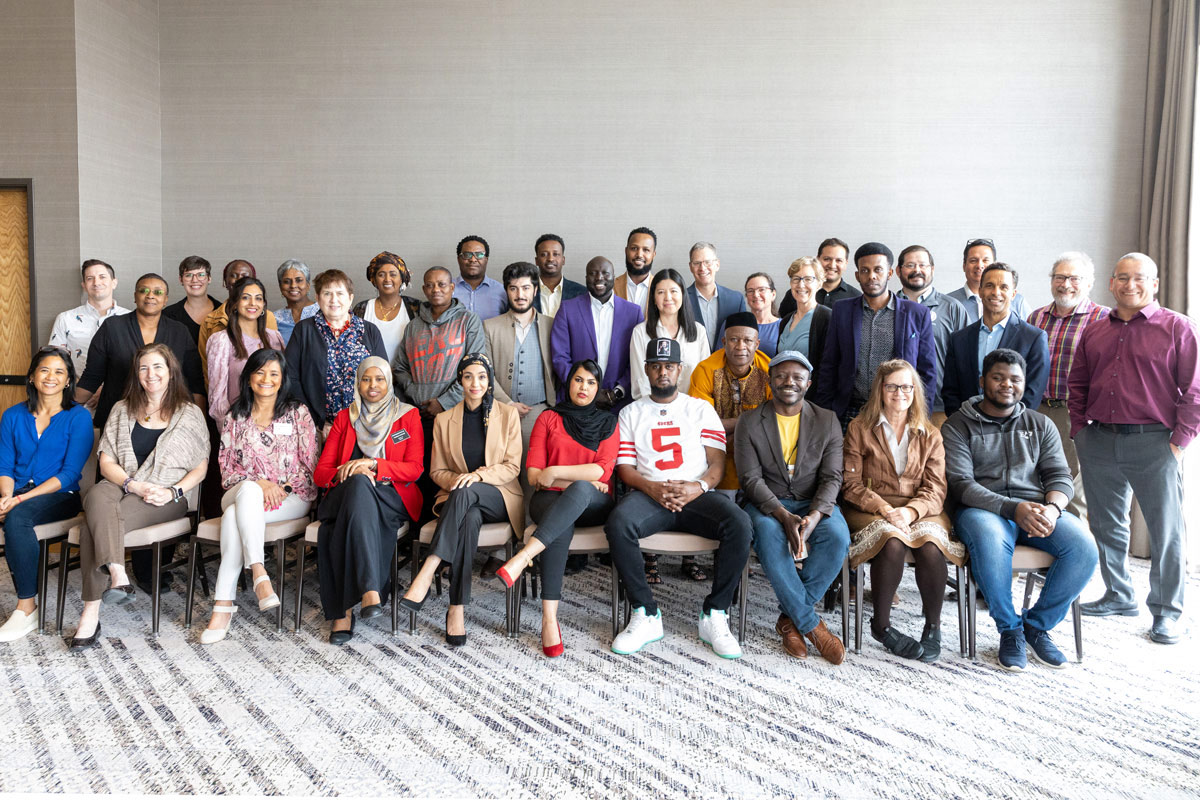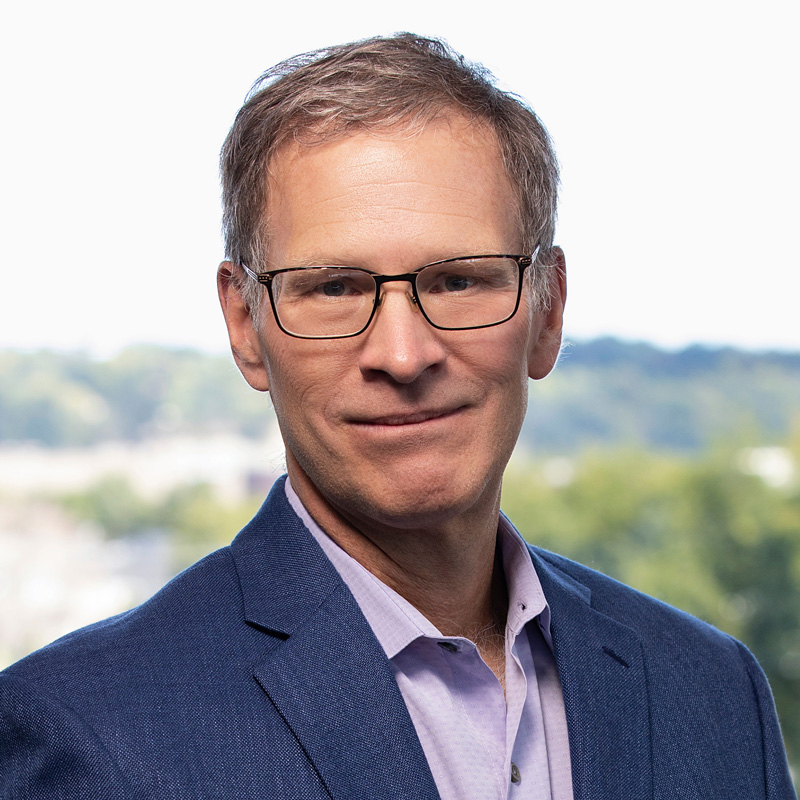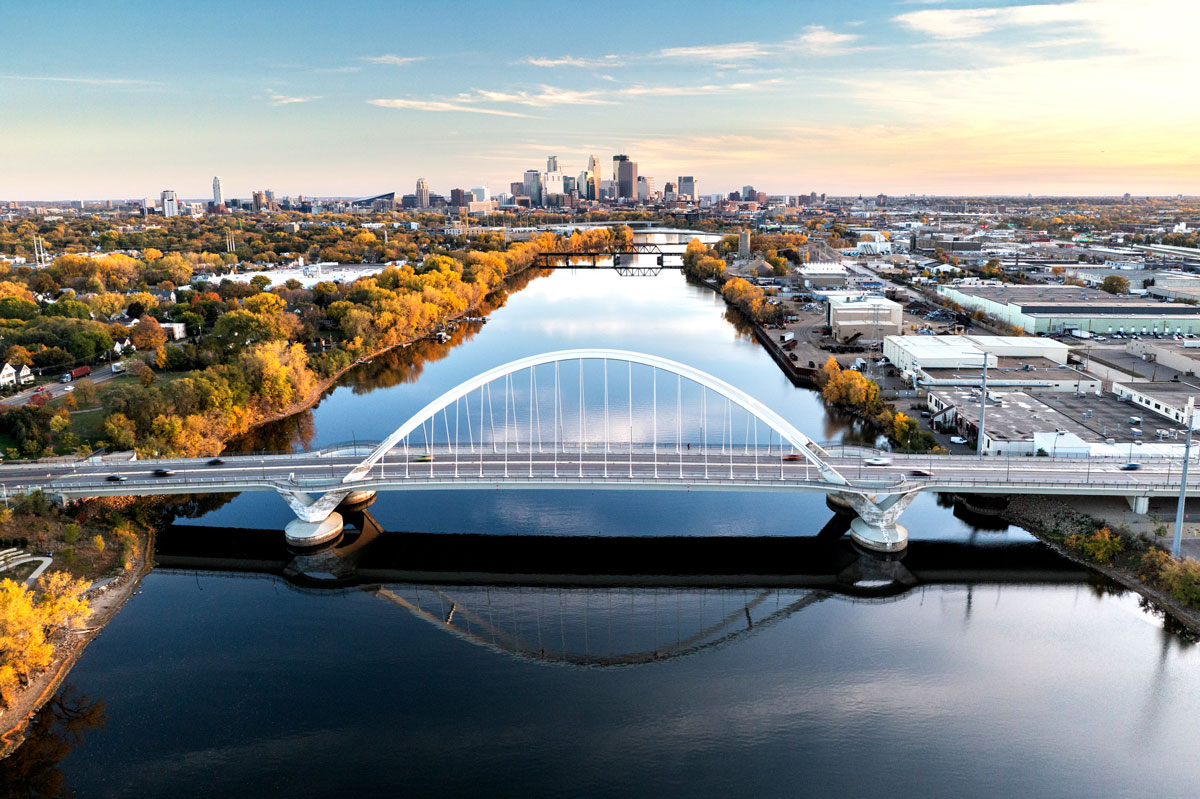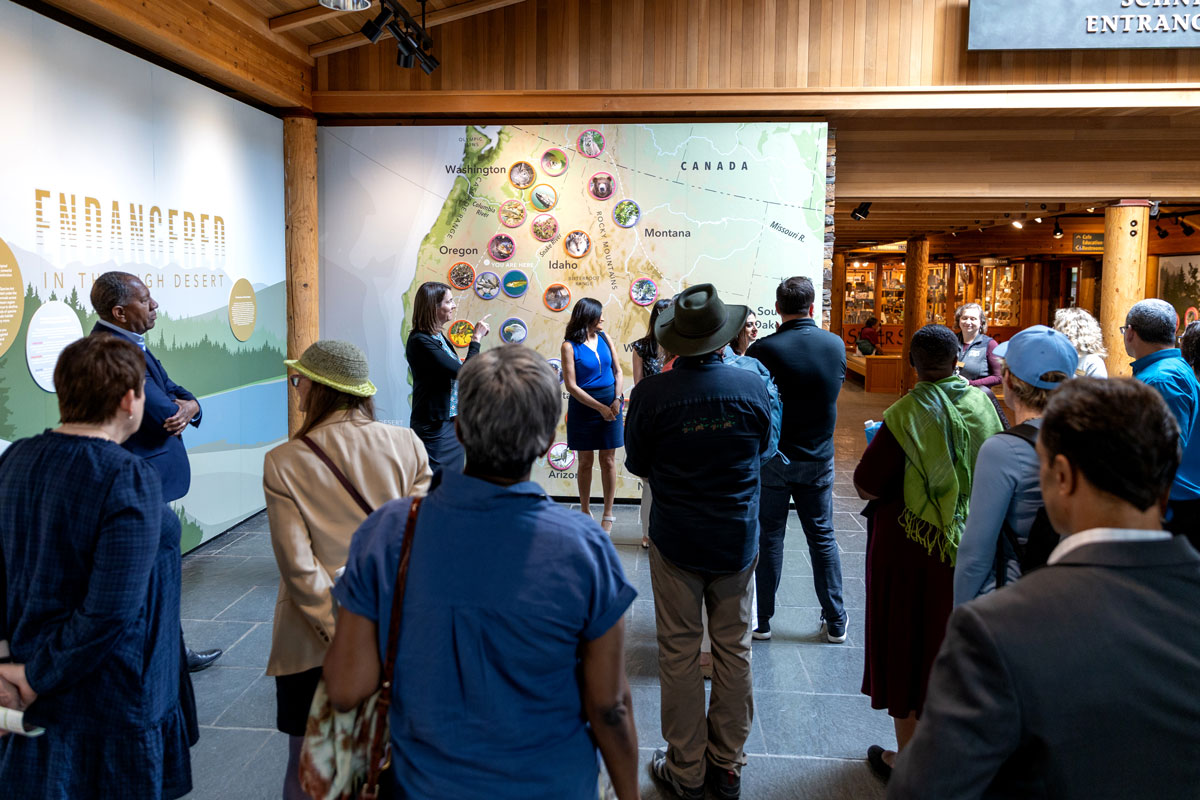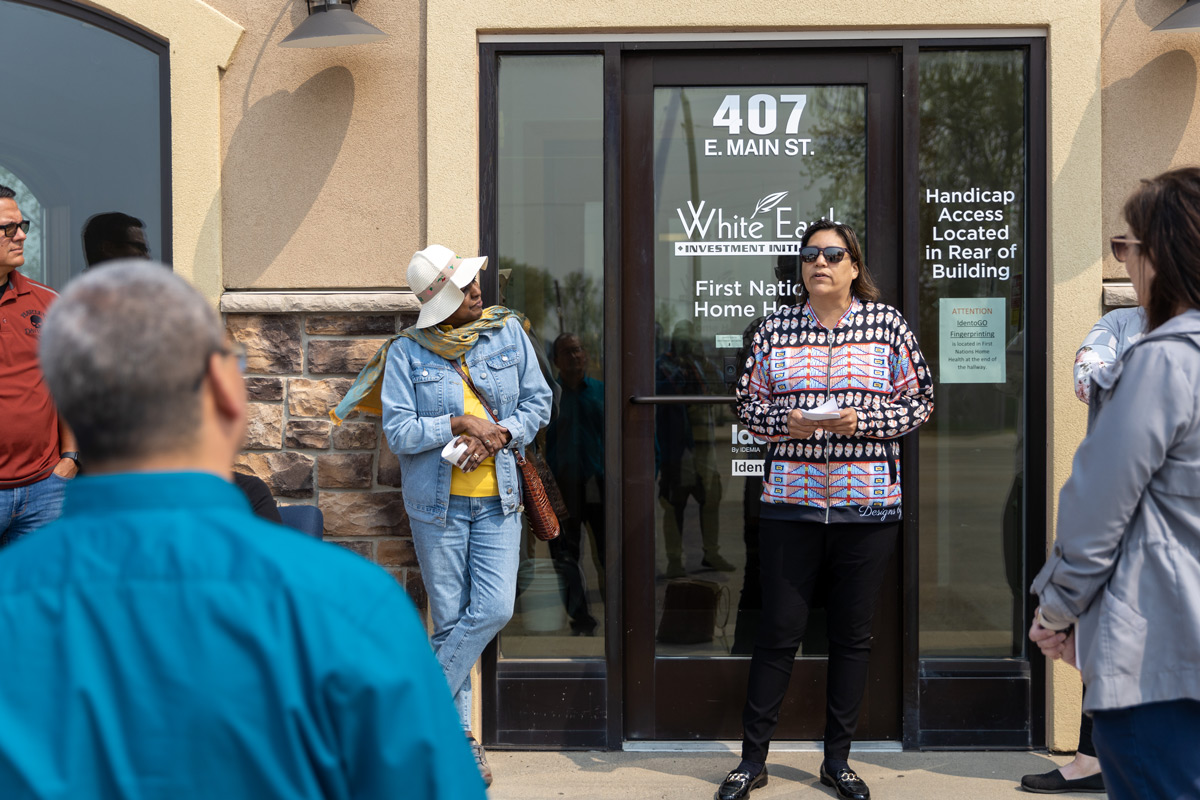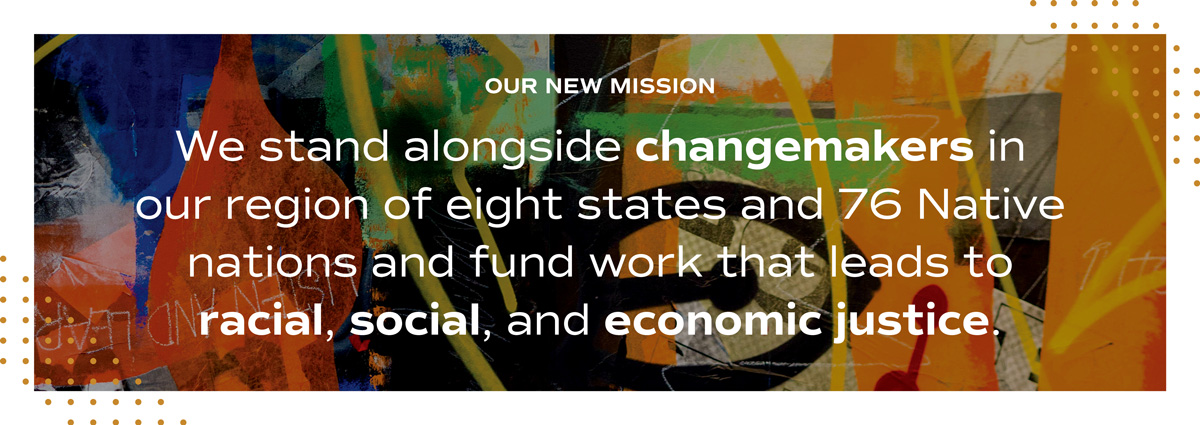
I’m excited about our new mission statement because of how clearly it points the way forward for the next generation of our work and how justice is at the center of it.
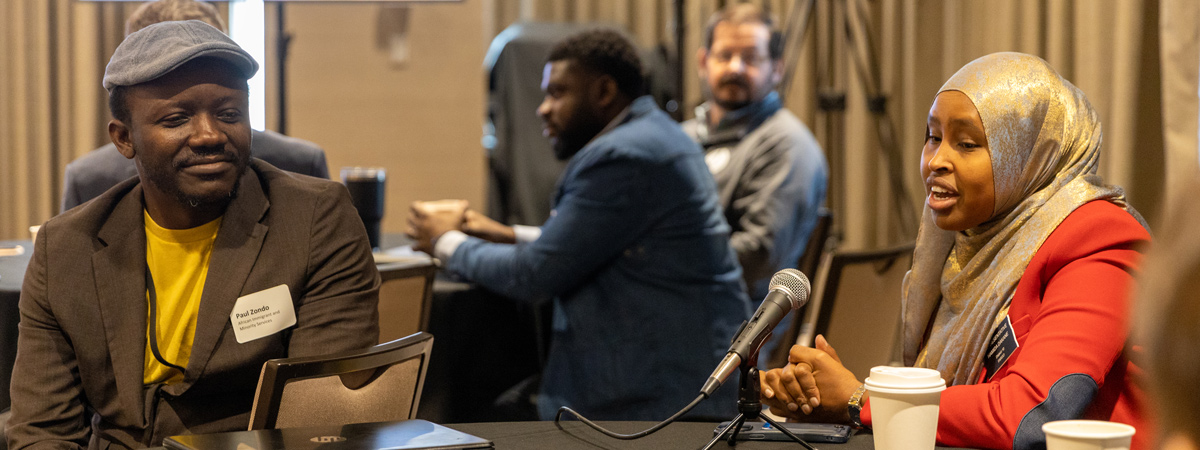
Paul Zondo, executive director of African Immigrant and Minority Services (AIMS), left front, and Rep. Hamida Dakane, D–ND District 10, right front, during a discussion at the 2023 NWAF board learning retreat in the Fargo, ND – Moorhead, MN area.
The most helpful idea fueling our mission statement change was lawyer and activist Bryan Stevenson’s insight: “The opposite of poverty is not wealth but justice.”
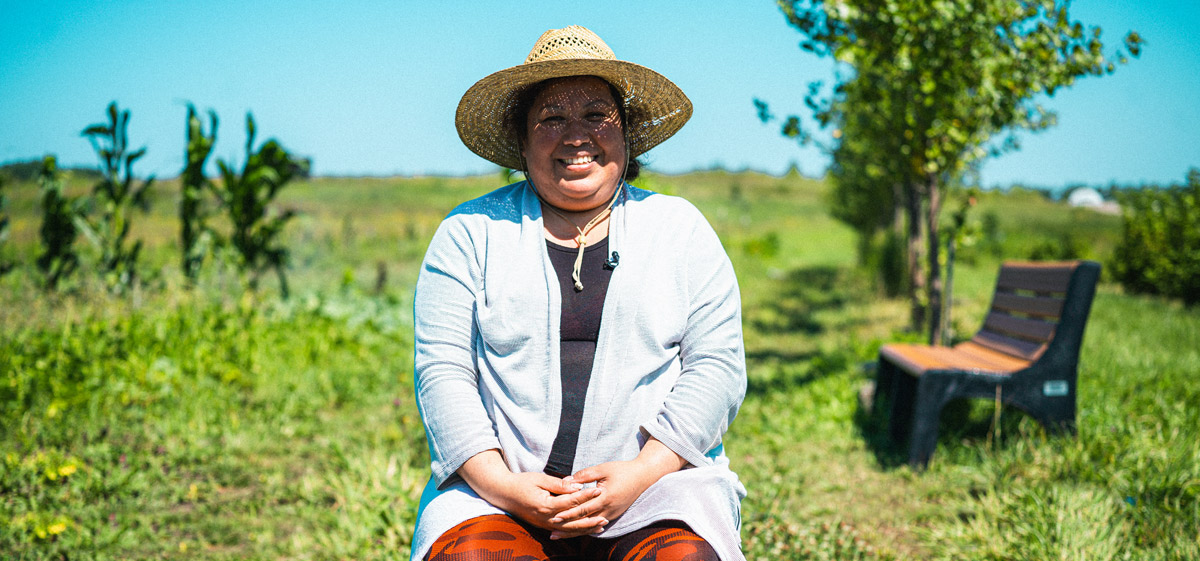
Araceli Baez, one of the farmers building agricultural entrepreneur skills in rural Minnesota through Sharing Our Roots in Northfield, MN. Photo courtesy of Sharing Our Roots.
Changemakers see the chains and name them. Then they work to break them.
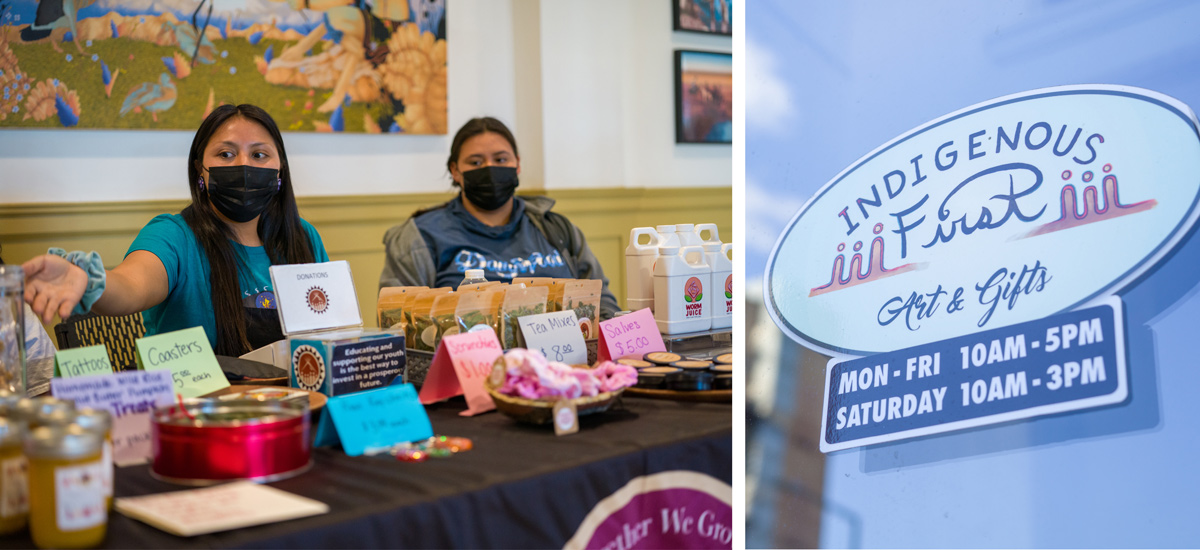
The Indigenous First Art & Gifts Shop in Duluth, MN, is one way that American Indian Community Housing Organization (AICHO) is building an Indigenous economy that supports culture and healing.
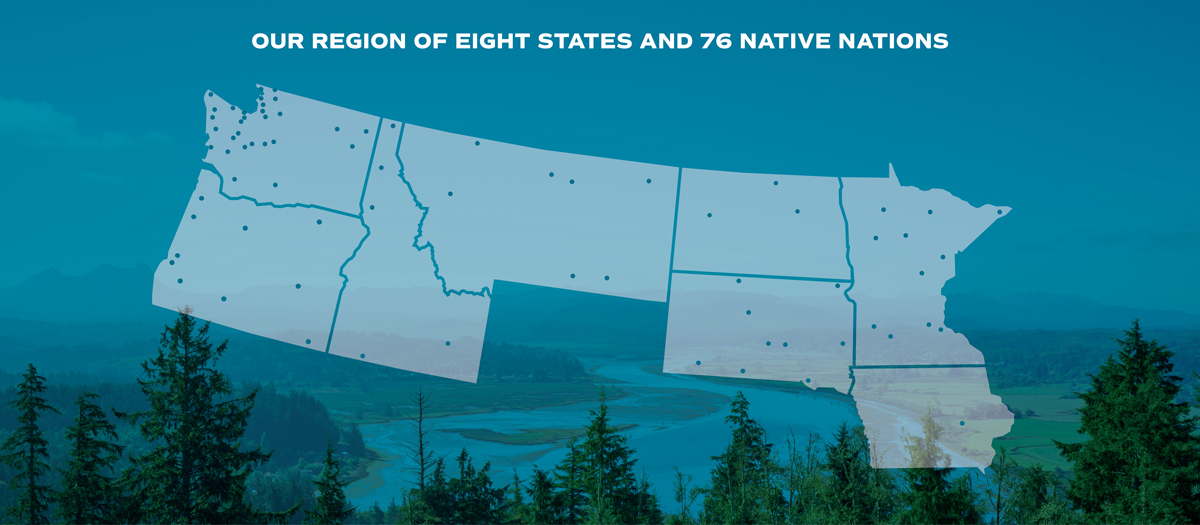
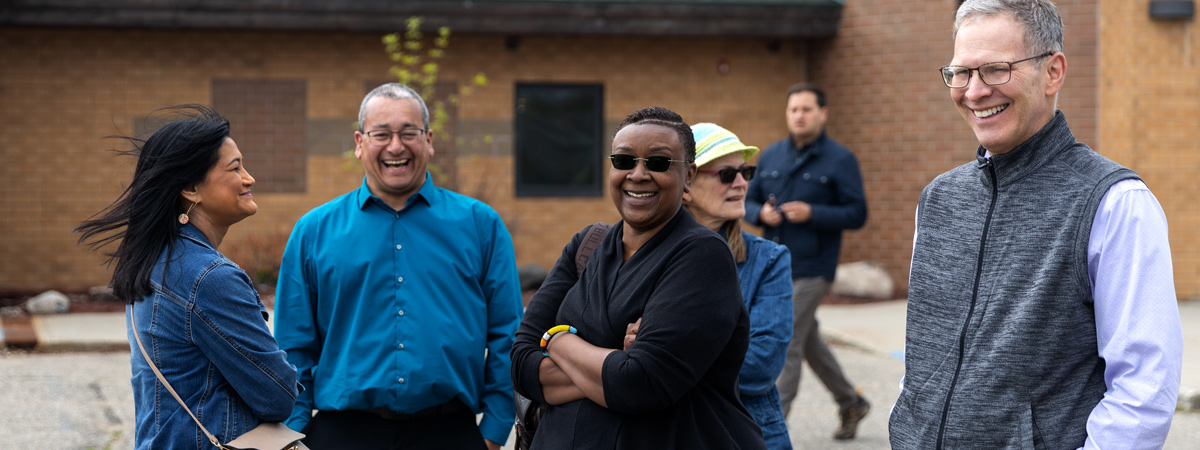
An uplifting moment during a visit to White Earth Nation, MN, in 2023 by (from left) NWAF board members Laura Alvarez Schrag, Joe Eltobgi, and Salome Mwangi; Program Director Karla Miller; Program Officer John Fetzer; and CEO Kevin Walker.
Photo top: NWAF board and staff join representatives from Immigrant Development Center (IDC), Afro American Development Association (AADA), and Ethnic Self-Help Alliance for Refugee Assistance (ESHARA) during the 2023 board learning retreat in the Fargo, ND – Moorhead, MN area.

